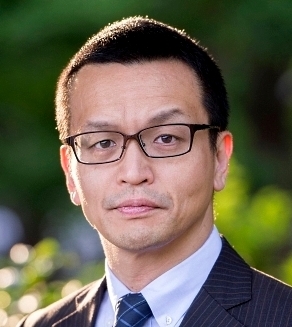
By Atsuhito Isozaki
The 8th Congress of the Workers' Party of Korea, held from January 5, was strongly characterized by a return to the socialist system of the Kim Il-sung administration. In his nine-hour address, Kim Jong-un announced a five-year plan centered on self-reliance and self-sufficiency. He vowed to comprehensively develop and expand diplomacy, while denouncing the United States as North Korea's "biggest enemy." The touting of friendly relations with China, Russia, Cuba and Vietnam was vividly reminiscent of the Cold War era.
At the last party congress Kim Jong-un wore a suit. This time, however, he wore a Mao suit. In retrospect, this signaled the somewhat surprising appointment of Kim Jong-un as General Secretary of the Workers' Party of Korea.
Kim Jong-un was "elected" General Secretary by the Congress. In April 2012, Kim Jong-un declared Kim Jong-il "Eternal Chairman," effectively preventing the title ‘Chairman' from ever being conferred on another person, before appointing himself to the newly created post of First Secretary. At the 7th Congress in May 2016, Kim Jong-un's title changed from First Secretary to Chairman.
Although North Korean media reports suggest that there will be no significant change in the authority of the party leadership, Kim Jong-un still insisted on reinstating the position of General Secretary. This change may be modest, but it is nonetheless an important factor in the future of North Korea.
The title of General Secretary has a strong continuity with Kim Il-sung and Kim Jong-il. In October 1966, Kim Il-sung's title changed from Chairman of the Central Committee to General Secretary. Kim Jong-un's latest appointment as "General Secretary of the Workers' Party of Korea" rather than "Chairman of the Central Committee of the Workers' Party of Korea" means that he has followed the same path as his grandfather in the sense of going from Chairman to General Secretary, although strictly speaking the position is different. In his tenth year in power, Kim Jong-un has finally gained the confidence to display his equal status with Kim Il-sung and Kim Jong-il. It is this that has enabled him to revoke his own policy that the title "General Secretary" can never be conferred on another person.
Organs of the party were also changed, with the Executive Policy Bureau reverting to the Secretariat Bureau. This may be due to a desire on the part of Kim Jong-un to relieve his workload. Although Kim Jong-un still has overwhelming authority to rule, a system is being developed to delegate specific practical matters to his subordinates. It is, as it were, the institutionalization of a "group assistant system".
Some external changes in methods of governance have been observed. For example, in September 2020, the North Korean media reported visits by Ri Pyong-chol and Pak Pong-ju, members of the Presidium of the Political Bureau, to typhoon-damaged areas to "provide guidance" on recovery work. This is a major shift in domestic politics, since up until that time the only people who could "provide guidance" in North Korea were Kim Il-sung, Kim Jong-il and Kim Jong-un. The shift is further evidenced by the fact that at this year's Congress, Kim Jong-un entrusted his subordinates to "provide guidance" to working groups set up for different sectors, such as industry, agriculture and the military. Kim Jong-un himself did not put in an appearance.
The Congress is held to showcase past achievements and present the outlook for further development. However, due to the stalemate in U.S.-North Korea relations and the resulting prolonged economic sanctions, as well as the COVID-19 pandemic, this year there were very few achievements to showcase. Moreover, the international environment is not expected to improve in the near term, and there is no means of achieving a breakthrough in the current situation. Consequently, the Kim Jong-un administration can do little more than reorganize agencies and tighten human resources and systems.
Judging from the number of delegates who attended the Congress, the party has over 6 million members. This is a significant increase compared with an estimated 3 million during the Kim Jong-il era. The authority of the Central Auditing Commission to expose wrongdoing within the party, such as "anti-socialist phenomena," has also been strengthened.
Key officials were appointed at the First Plenary Meeting of the 8th Central Committee of the Workers' Party of Korea, held during the Congress period. In the five years since the last Congress, three of the five members of the Presidium of the Political Bureau other than Kim Jong-un and Choe Ryong-hae have been replaced. The rotation of subordinate politburo members has also been fierce. Kim Jong-un's sister Kim Yo-jong has been an alternate member of the Politburo at various times.
This does not mean that the Kim Jong-un administration is unstable. The ability to reorganize agencies and make frequent appointments should rather be seen as evidence that Kim Jong-un has established centralized control. Having gained a greater level of confidence, Kim Jong-un will continue to promote his socialist dynasty.
(Atsuhito Isozaki is Associate Professor at Keio University, Japan.)
ADVERTISEMENT
ADVERTISEMENT


































